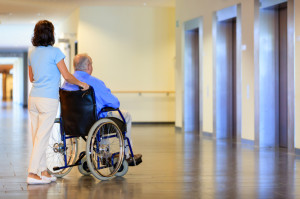 Elder sexual abuse is understudied and rarely understood. Victims of elder sexual abuse frequently have medical conditions that cause memory loss, confusion, or problems with communication. Elder sexual abuse is an aspect of elder maltreatment that can involve multiple forms of abuse. It can include types of elder physical abuse and emotional abuse. Furthermore, it can be difficult to seek justice for elder sexual abuse.
Elder sexual abuse is understudied and rarely understood. Victims of elder sexual abuse frequently have medical conditions that cause memory loss, confusion, or problems with communication. Elder sexual abuse is an aspect of elder maltreatment that can involve multiple forms of abuse. It can include types of elder physical abuse and emotional abuse. Furthermore, it can be difficult to seek justice for elder sexual abuse.
Elder sexual abuse is defined as any unwanted sexual conduct against a person over the age of 60. The elder sexual abuse may cause harm by tricking, manipulating, or coercing the elder person into undesired sexual contact. This includes sexual contact with an elderly person that is unable to communicate consent or disapproval.
NIJ Sexual Abuse Study
Studies conducted by the National Institute of Justice (NIJ) found that the older the victim was, the less likely it was for the sexual offender to actually be convicted. The same NIJ study found that elder sexual abuse victims were less likely to be believed if there weren’t any signs of physical trauma. Lastly, elder sexual abuse victims living in nursing homes were the least likely to achieve a conviction for their perpetrators.
Elder Sexual Abuse Offenders
Elder sexual abuse research is limited. Research is made more complicated by the fact that many elder sexual abuse victims are unable to communicate the elder maltreatment. Cases of elder sexual abuse have occurred involving nursing home assistants, live-in nurses, friends, family members, or any other type of care provider that is trusted to be alone with the elderly patient.
Where Does Elder Sexual Abuse Happen?
According to the National Elder Abuse Incidence Study of 1998, approximately 67% of elder sexual abusers were family members. Another study, published in the Journal of Abuse in 2000, estimated 12.2% of elder sexual abuse victims were assaulted within their own home. Approximately 14.6% of elder sexual abuse victims were assaulted in the sexual offender’s home. The largest percentage of elder sexual abuse, around 70.7% of cases, occurred within nursing homes.
Signs of Elder Sexual Abuse
Indicators of elder sexual abuse can be both physical and behavioral, including:
- New emergence of sexually transmitted diseases (STDs)
- New difficulty sitting or walking
- Pelvic injury
- Bruises on inner thighs or around the genital area
- Anal or genital pain, bleeding, or irritation
- Bloody, torn, or stained undergarments
- Extreme agitation
- Withdrawal from social interactions
- Panic attacks, or emerging post-traumatic stress disorder (PTSD) symptoms
- Inappropriate, aggressive, or unusual sexual behavior
- Inappropriate or unusual behavior, appearing as a sex-role relationship, between the victim and the elder sexual abuse suspect
- Suicide attempts
Elder Sexual Abuse Statistics
The Pennsylvania Coalition Against Rape (PCAR) is one of the most active organizations investigating all forms of sexual abuse. PCAR offers approximately 50 rape crisis centers across the state of Pennsylvania. The organization supplies the public with some of the most detailed research in the United States that focuses on elder sexual abuse.
Through their continued research, PCAR discovered the following statistics regarding elder sexual abuse:
– Only about 30% of all elder sexual abuse victims, over the age of 65, report their abusers to the police.
– Females are 6 times more likely than males to experience elder sexual abuse.
– The majority of elder sexual abuse victims, roughly 83.3%, live in nursing homes or adult care facilities.
– While 83.3% of elder sexual abuse victims live in some form of institutional care facility, 26.8% of those victims experienced the actual act of sexual abuse within a family home or the perpetrator’s home.
– Approximately 76.2% of elder sexual abuse cases have at least one witness.
– In 81% of elder sexual abuse cases, the perpetrator was the actual caregiver to the elderly person.
Sexual Abuse in Nursing Homes
If elder sexual abuse is suspected, it is important to contact a government official for further investigation. As with elder emotional abuse, elder sexual abuse victims will be assigned a government-affiliated caregiver to investigate the accusations. The state-assigned caregiver will ask the elderly person a series of questions providing insight on their relationships, mental stability, and current living environment. If elder sexual abuse is identified, patients will be relocated to another home environment and treated with medication or counseling.
Sources:
Benbow, Susan, and Peter Haddad. “Sexual abuse of the elderly mentally ill.” Medicine in the Elderly. 1993. http://www.ncbi.nlm.nih.gov/pmc/articles/PMC2399976/?page=1
Burgress, A.W. Elderly Victims of Sexual Abuse and Their Offenders. Final Report to the U.S. Department of Justice, Grant No. 2003-WG-BX-1007. https://www.ncjrs.gov/pdffiles1/nij/grants/216550.pdf
Burgess, A.W., and N.P. Hanrahan. Identifying Forensic Markers in Elder Sexual Abuse. Final report to the National Institute of Justice, Grant No. 2001–IJ–CX–K015.
“Elder sexual abuse.” Pennsylvania Coalition Against Rape. PCAR – Pennsylvania Coalition Against Rape. Web. 18 May 2013. http://www.pcar.org/elder-sexual-abuse
“Elder Sexual Assault.” Blackburn Center – Against Domestic and Sexual Violence. Blackburn Center, n.d. Web. 30 May 2013. http://www.blackburncenter.org/elder_sa.asp
“Sexual Abuse.” National Committee for the Prevention of Elder Abuse. N.p., n.d. Web. 18 May 2013. http://www.preventelderabuse.org/elderabuse/s_abuse.html
United States. Department of Aging. Addressing Elder Sexual Abuse: Developing a Community Response. Commonwealth of Pennsylvania, 2007. Web. http://www.portal.state.pa.us/portal/server.pt?open=514&objID=616049&mode=2
United States. National Institute of Justice. Sexual Abuse of the Elderly. Office of Justice Programs, 2007. Web. http://www.nij.gov/topics/crime/elder-abuse/sexual-abuse.htm
“What is Elder Sexual Abuse.” Pittsburgh Action Against Rape. PAAR – Pittsburgh Action Against Rape, n.d. Web. 20 May 2013. http://paar.net/10
